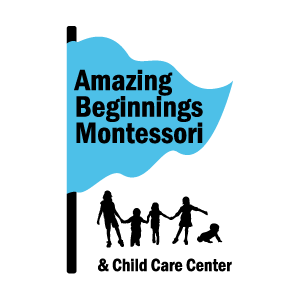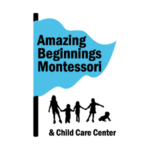Why Choose Montessori?
Montessori children are unusually adaptable. They’ve learned to work independently and in groups. Encouraged to make decisions from an early age, they are problem-solvers who can make appropriate choices and manage their time well.
Our Montessori School Programs
An affordable investment in your child’s future
Choosing a Montessori childcare school for your child can be a great option. We recognize the immense capacity for learning that children possess, even from infancy. Our Montessori program is designed to introduce age-appropriate educational materials and activities, while also supporting the development of essential skills such as concentration, coordination and language acquisition.
Our classrooms are carefully prepared to encourage independent exploration and discovery. From the earliest years, children are given opportunities to choose their activities and work at their own pace, fostering a sense of independence and self-directed learning.
Children are provided with specialized Montessori materials that are designed to stimulate natural curiosity and facilitate hands-on learning experiences. These materials are tailored to suit the developmental needs and interests of each child.
We prioritize language acquisition by creating rich language environments and incorporating storytelling, songs, and conversation into daily routines. Early exposure to language builds a strong foundation for future literacy skills.
Our classrooms offer sensorial activities that help young children understand their world through the senses. These experiences lay the groundwork for later math and science concepts. Additionally, we introduce children to the broader world through cultural studies, geography and exposure to different traditions, fostering global perspective and respect for diversity.
More Important Benefits of Montessori Education
Students in Montessori are encouraged to exchange ideas and discuss their work freely with others. Their communication skills ease the way in new settings. Research has shown that the best predictor of future success is a positive sense of self-esteem. Montessori programs, based on self-directed, non-competitive activities, help children develop strong self-images and the confidence to face challenges with optimism.
Montessori Learning
- Emphasis on cognitive structure and social development
- Teacher has unobtrusive role in classroom activity; child is an active participant in learning
- Environment and method encourage internal self-discipline
- Instruction, both individual and group, adapts to each student’s learning style
- Mixed age grouping
- Children are encouraged to teach, collaborate, and help each other
- Child chooses own work from interests and abilities
- Child formulates own concepts from self-teaching materials
- Child works as long as she/he wishes on chosen project
- Child sets own learning pace to internalize information
- Child spots own errors through feedback from the material
- Learning is reinforced internally through the child’s own repetition of an activity and internal feelings of success
- Multi-sensory materials for physical exploration
- Organized program for learning care of self and environment (polishing shoes, cleaning the sink, etc.)
Traditional Education
- Emphasis on rote knowledge and social development
- Teacher has domain, active role in classroom activity; child is a passive participant in learning
- Teacher acts as primary enforcer of external discipline
- Instruction, both individual and group, conforms to the adult’s teaching style
- Same age grouping
- Most teaching is done by teacher and collaboration is discouraged
- Curriculum structured for child with little regard for child’s interests
- Child is guided to concepts by teacher
- Child generally given specific time limit for work
- Instruction pace usually set by group norm or teacher
- If work is corrected, errors usually pointed out by teacher
- Learning is reinforced externally by rote repetition and rewards/discouragements
- Fewer materials for sensory development and concrete manipulation
- Less emphasis on self-care instruction and classroom maintenance



